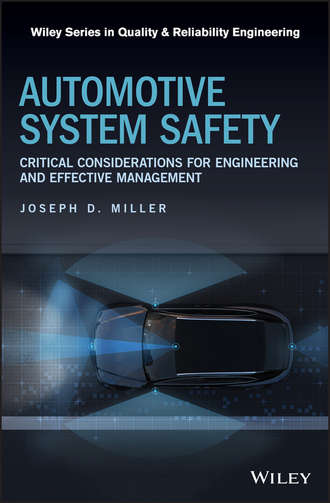
Полная версия
Automotive System Safety
Contains practical insights into automotive system safety with a focus on corporate safety organization and safety management Functional Safety has become important and mandated in the automotive industry by inclusion of ISO 26262 in OEM requirements to suppliers. This unique and practical guide is geared toward helping small and large automotive companies, and the managers and engineers in those companies, improve automotive system safety. Based on the author’s experience within the field, it is a useful tool for marketing, sales, and business development professionals to understand and converse knowledgeably with customers and prospects. Automotive System Safety: Critical Considerations for Engineering and Effective Management teaches readers how to incorporate automotive system safety efficiently into an organization. Chapters cover: Safety Expectations for Consumers, OEMs, and Tier 1 Suppliers; System Safety vs. Functional Safety; Safety Audits and Assessments; Safety Culture; and Lifecycle Safety. Sections on Determining Risk; Risk Reduction; and Safety of the Intended Function are also presented. In addition, the book discusses causes of safety recalls; how to use metrics as differentiators to win business; criteria for a successful safety organization; and more. Discusses Safety of the Intended Function (SOTIF), with a chapter about an emerging standard (SOTIF, ISO PAS 21448), which is for handling the development of autonomous vehicles Helps safety managers, engineers, directors, and marketing professionals improve their knowledge of the process of FS standards Aimed at helping automotive companies—big and small—and their employees improve system safety Covers auditing and the use of metrics Automotive System Safety: Critical Considerations for Engineering and Effective Management is an excellent book for anyone who oversees the safety and development of automobiles. It will also benefit those who sell and market vehicles to prospective customers.

